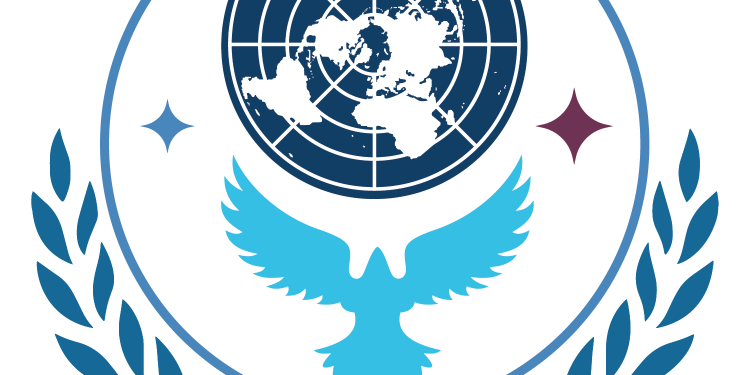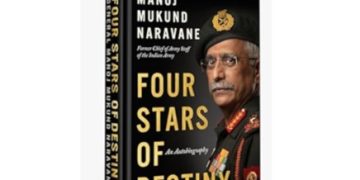Bharat Jhunjhunwala
India is being criticised by various International Human Rights watchdogs. The United Nations High Commissioner for Human Rights has expressed “concern over restrictions on non-governmental organisations, arrests of activists and implications of the Citizenship Amendment Act.” The Human Rights Watch has recently said, “The Indian government is using counterterrorism operations to silence peaceful dissenters, human rights activists, and journalists.” There is much substance to these allegations.
The human rights as enshrined in the Universal Declaration of Human Rights (UDHR) is indeed a milestone when seen in the backdrop of autocracies like Hitler’s Germany and slave-harbouring George Washington of the United States. The position of India is different since we had a “developed” concept of society. For us, the Declaration is actually a regression on many points. While taking the above criticisms seriously and restoring human rights as enshrined in the Declaration, India must simultaneously prepare an alternate Declaration and present it before the United Nations.
Article 1 of the Declaration stipulates that all human beings are “equal in dignity and rights.” Article 3 stipulates that all have rights to life, liberty and security. Article 13 speaks of rights of freedom of movement. Article 26(1) provides for right to education. The difficulty is that no two of these many equalities can go together. If we were to secure equality of dignity between a weak and strong student in the class, it would be necessary to accept inequality of rights between the two. The right of the bright student would have to be restricted and more time provided to the weaker student in the laboratory to establish equality of dignity between the two. No two of these rights can go together. It was necessary to state upfront which would be the key “right” in which equality would be secured; and to acknowledge that inequality in all other parameters would be acceptable. The Declaration is a hotchpotch of mutually inconsistent equalities.
Our tradition has specified that equality will be secured only in ‘opportunities of self-realisation.’ Human beings are different in their samskaras (inner tendencies) and capacities. Each should be provided with such opportunities that are necessary for her self-development. One who has the samskara of making money should be given the freedom to do business; but one who has the samskaras of kingship must be deprived of that very freedom. It is necessary to amend the Declaration to say, “Every human being is entitled to equal opportunities to realise his inner tendencies and inequality would be accepted in all other parameters.”
Article 7 of the Declaration provides that “all are equal before law.” This means that the weak and the strong have equal legal rights. Naturally the weak would not be able to enforce their rights. Our tradition asks for an affirmative approach. Yudhishthira was selected as Yuvaraja because he awarded lesser punishment to the Sudra and progressively higher punishment to Vaisya and Kshatriya. The principle was that punishment should be awarded in keeping with one’s social responsibilities. This affirmative inequality needs to be built into the Declaration.
Article 29 of the Declaration emphasises the primacy of the rights of the individual and permits them to be limited if necessary, for the ‘general welfare of the society’. The problem here is that rights of the individual are primary. The result is that individual rights of the terrorists are given primacy while the larger society suffers because establishing that the activities of the terrorist are indeed against the welfare of the society is a hard task. Our tradition, on the other hand, puts “general welfare” in the center. It is said that “give up one for the family, family for the village, and the village for the society.” Recently India has seen extra-judicial killings of the rapists and the society has lapped them up with glee because the society thinks that its welfare is secured by eliminating the rapists rather than harping about their human rights. It is necessary to amend this Article to say, “Human Rights of the individual will be subservient to the larger social interest.”
Article 29(1) mentions that “everyone has duties to the community.” But the discharge of these duties is not compulsory. These are empty advice without teeth. Article 26(2) says that education shall strengthen “respect for human rights and freedoms.” It does not say that education shall strengthen the respect for “duties to the community.” Articles 18, 19 and 20 provide for freedom of thought, expression and assembly. These are not contingent on one discharging his duties to the community. The result has been that human beings are not under any obligation to discharge their duties alongside demanding their human rights. This leads to ever increasing violation of the rights of others. Our tradition, on the other hand, speaks only of duties. Gita says “duties alone are your right.” The Declaration should be amended to make human rights contingent on the discharge of human duties.
The Declaration endorses the present constitution of the Security Council, which is based on inequality. But the Article 29(3) says that nothing shall be said against the principles of United Nations.
The civil and political rights of all human beings stipulated in Articles 4, 5, 14(1), 15, 16, 19 etc. have universal applicability. But the economic rights are restricted within the borders of nations. Article 13 restricts the freedom of movement to “within the borders of each State.” If all human beings in the world are entitled to equal rights then why should certain human beings be restricted from movement into another country? Article 21(2) provides that the right of equal access to public services will be applicable only within ‘his country’. Pray, why? When civil rights are universal then why should not access to public services be universal? Article 22 limits the right to social security “in accordance with resources of each State.” Why should then political rights also be provided in accordance with resources of each State? The result of these provisions is that the industrial countries can interfere in the affairs of the developing countries in the name of political rights, but the developing countries cannot interfere in the industrial countries to secure their economic rights.
It is high time that we listen to the international criticism of India’s recent record on human rights while, at the same time, we must draw up a more just and equitable charter of human rights and present to the UN General Assembly for adoption.
The writer is a former professor at IIM, Bangalore. The views are his personal.






































